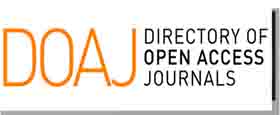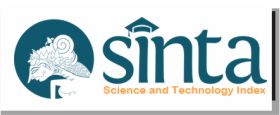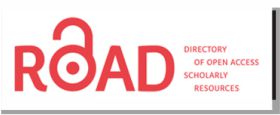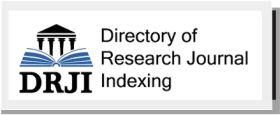“Green Destination Tourism” Reviewed from Islamic Economic Perspective (Case Study in Pulesari Yogyakarta Tourist Village)
Abstract
Natural tourism villages usually carry the concept of "go green and back to nature." One of the tours that apply this concept is in the Pulesari village, Yogyakarta, where it carries the concept of green tourism, which is one of the "green destination tourism spots." Therefore, the idea is interesting, especially on the impact of "green destination tourism," besides the phenomenon of "halal destination tourism." The phenomenon occurs due to the Indonesian topography, especially Yogyakarta. Since it is a tropical region, and currently the development of the Islamic economy is positive, leading to researchers conducting research on "green destination tourism," which is reviewed in an Islamic economic perspective and showing that the tourism village applies Islamic economic concepts where the transaction is far from gharar (unclear matter). Thus it has a positive impact and one of the alternative choices for the development of the "tourism industry sector" in accordance with Islamic sharia of transparent transactions without additional stuff. The method used by the researcher was a qualitative method, in which the researcher conducted a survey directly to tourist attractions to do interviews.
Keywords
Full Text:
PDFReferences
Akram, H., Si, M., Afifi, M., Basuki, P., Santoso, HB, Com, M.,. . . Nurabiah, M. (2013). National Seminar on Green Tourism and Economic Development (Green Tourism and Economic Development).
Al-Qur'an Al-Assal, Ahmad Muhammad and Fathi Ahmad Abdul Karim. 1999. Systems, Principles and Goals and Objectives of Islamic Economics. Bandung: Faithful Library.
Al-Nabahan, M. Faruq. 2002. Islamic Economic System: Options after the Failure of the Capitalist and Socialist Economic System. Yogyakarta: UII Press
Arifin, J. (2016). Al-Quran and Sunnah Insights on Tourism. Journal of An-Nur, 4 (2).
Besra, E. (2015). Potential of culinary tourism in supporting tourism in the city of Padang. JRAB: Journal of Accounting & Business Research, 12 (1).
Government pocket book 2016 (in the final report on the impact of the tourism sector on the Indonesian economy)
Burkart, AJ, & Medlik, S. (1981). Tourism: past, present and future. Tourism: past, present and future., (Ed. 2)
Cooper, Chris and Stephen Jackson. 1997. Destination Life Cycle: The Isle Of Man Case Study. In the Earthscan Reader in Sustinable Tourism. United Kingdom: Earthscan Publications Limited.
Fardiansyah, Elif. 2017. Investment in Islamic Economic Perspective: Theoretical and Empirical Approaches. Economica: Islamic Economic Journal Vol. 8 No.2
Hasan, A. (2014). Green Tourism. TOURISM MEDIA JOURNAL: Forum for Tourism Information, 12 (1).
Idri, & Tutik Quarter Point. 2008. Principles of Islamic Economics. Jakarta: Lintas Pustaka
Illy Yanti and Rafidah. 2009. Islamic Economy In Indonesian Economic System (Study of Islamic Economic Principles in KHES and Their Implementation of National Economy). CONTEXTUALITY VOL 25 No 1
Karim, Adiwarman. 2003. Islamic Economics: A Contempore Study. Jakarta: Gema Insani Press
Sukmawan, S., Rizal, MS, & Rohman, MF (2018). Kampung Kulservasi (Culinary And Conservation) Wanamerta, Tengger: The Concept Of Green Tourism. Indonesian Cultural Studies, 2 (2), 99-107.
Syahriza, Rahi. 2014. Sharia-Based Tourism (Study the Meaning of Sara's Word and Its Drevasion in the Al-Quran). Human Falah: Vol 1 No. 2
Hasan, Ali. "Green Tourism."Tourism Media Journal: Forum for Tourism Information 12.1 (2014).
Matienson A and Wall G. 1982. Tourism: Economic, Physical, and Social Impacts. New York. Longman Group Limited.
Nurhidayati, 2007.Community based tourism as an approach to sustainable tourism development. Journal of society, culture and politics. vol20 (3) p.31-44
Moleong, Lexy. 2012 Thirty Printing. Qualitative Research Methods, Bandung: PT. Youth Rosdakarya, p. 5
Sunaryo, Bambang. 2013. Tourism Destination Development Policy; Concept and Application in Indonesia. Yogyakarta: Gavamedia
Yusuf, AM (2016). Quantitative, qualitative & combined research methods.Prenada Media.
Weaver, D. 2012. Ecotourism. Australia: John Wiley & Sons. p 15
Other Sources
http://www.kemenpar.go.id/post/kajian-dampak-sektor-pbPariwisata-terhadap-perekonomi-indonesiaaccessed in July 2019
https://visitingjogja.com/12734/desa-wisata-pulesari/accessed in July 2019
DOI: https://doi.org/10.31334/bijak.v17i2.730
Refbacks
- There are currently no refbacks.
Copyright (c) 2020 Majalah Ilmiah Bijak

This work is licensed under a Creative Commons Attribution-NonCommercial-ShareAlike 4.0 International License.
View My Stats
ISSN 1411-0830 (Media Cetak) 2621-749X (Media Online)
Email : [email protected] / [email protected]
Website: http://ojs.stiami.ac.id/index.php/bijak/index
INDEKS BY:
|









1.png)










